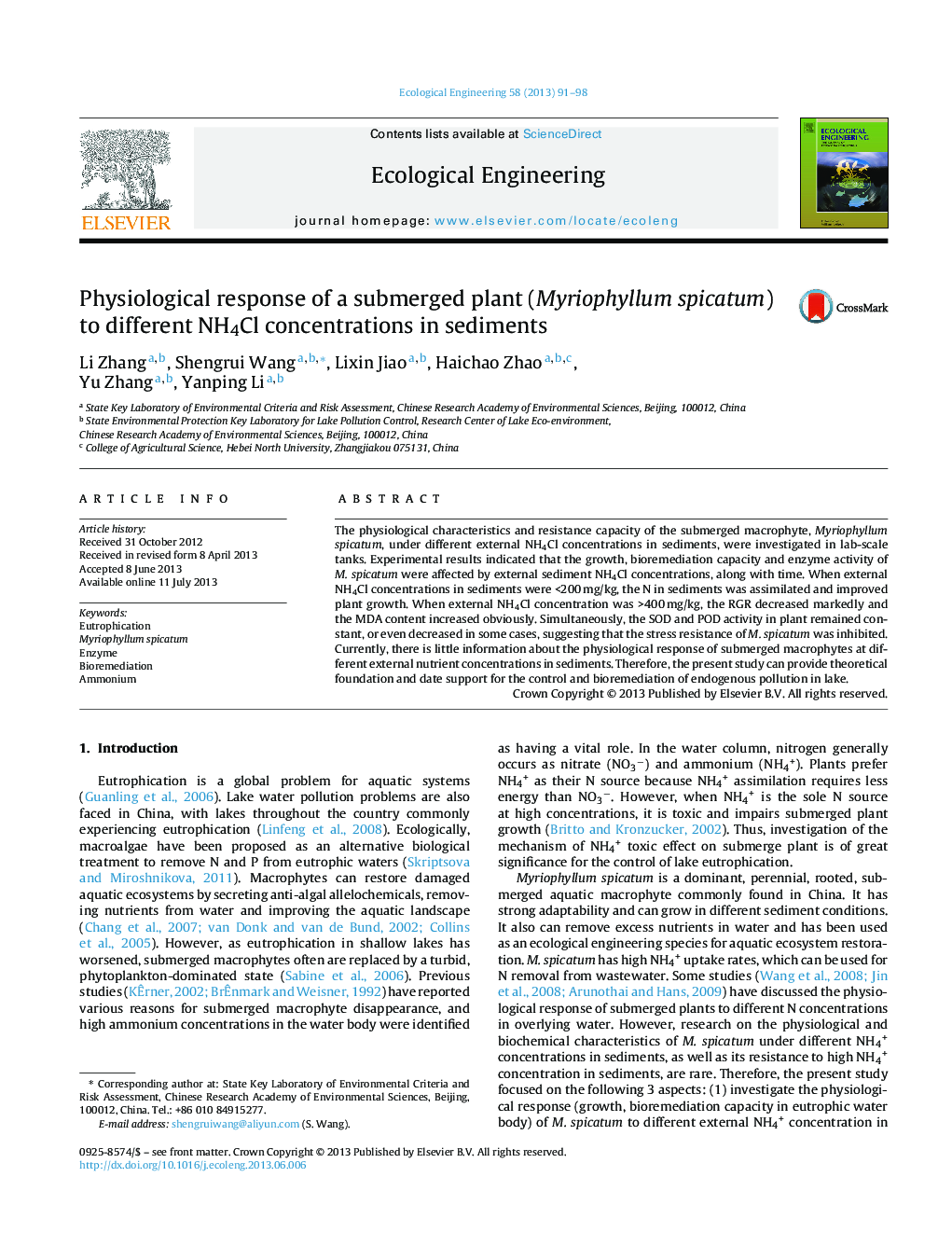| Article ID | Journal | Published Year | Pages | File Type |
|---|---|---|---|---|
| 6302483 | Ecological Engineering | 2013 | 8 Pages |
Abstract
The physiological characteristics and resistance capacity of the submerged macrophyte, Myriophyllum spicatum, under different external NH4Cl concentrations in sediments, were investigated in lab-scale tanks. Experimental results indicated that the growth, bioremediation capacity and enzyme activity of M. spicatum were affected by external sediment NH4Cl concentrations, along with time. When external NH4Cl concentrations in sediments were <200Â mg/kg, the N in sediments was assimilated and improved plant growth. When external NH4Cl concentration was >400Â mg/kg, the RGR decreased markedly and the MDA content increased obviously. Simultaneously, the SOD and POD activity in plant remained constant, or even decreased in some cases, suggesting that the stress resistance of M. spicatum was inhibited. Currently, there is little information about the physiological response of submerged macrophytes at different external nutrient concentrations in sediments. Therefore, the present study can provide theoretical foundation and date support for the control and bioremediation of endogenous pollution in lake.
Related Topics
Life Sciences
Agricultural and Biological Sciences
Ecology, Evolution, Behavior and Systematics
Authors
Li Zhang, Shengrui Wang, Lixin Jiao, Haichao Zhao, Yu Zhang, Yanping Li,
